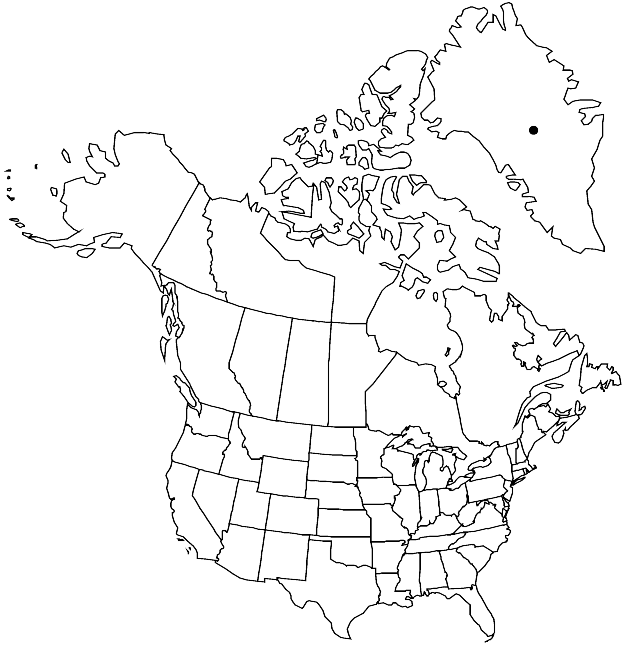Difference between revisions of "Campylium longicuspis"
Lindbergia 14: 144. 1989.
FNA>Volume Importer |
imported>Volume Importer |
||
| (6 intermediate revisions by 2 users not shown) | |||
| Line 7: | Line 7: | ||
|year=1989 | |year=1989 | ||
}} | }} | ||
| − | |basionyms={{Treatment/ID/ | + | |basionyms={{Treatment/ID/Basionym |
|name=Amblystegium longicuspis | |name=Amblystegium longicuspis | ||
|authority=Lindberg & Arnell | |authority=Lindberg & Arnell | ||
| + | |rank=species | ||
| + | |publication_title=Kongl. Svenska Vetensk. Acad. Handl., n. s. | ||
| + | |publication_place=23(10): 123. 1890 | ||
}} | }} | ||
|synonyms= | |synonyms= | ||
| Line 25: | Line 28: | ||
|elevation=low elevations | |elevation=low elevations | ||
|distribution=Greenland;arctic Eurasia;c Asia. | |distribution=Greenland;arctic Eurasia;c Asia. | ||
| − | |discussion=<p>Campylium longicuspis is known from a single arctic North American locality in northeast Greenland. The species is easily distinguished from C. stellatum by its ovate or narrowly ovate, rather than cordate or rounded-triangular stem leaves, and shorter leaf acumen, as well as by its autoicous rather than dioicous sexual condition. The stem leaves are straight or slightly homomallous. Differences between 1. C. laxifolium and C. longicuspis are discussed with the former. This species is very rare, and possibly overlooked in the Arctic.</p> | + | |discussion=<p><i>Campylium longicuspis</i> is known from a single arctic North American locality in northeast Greenland. The species is easily distinguished from <i>C. stellatum</i> by its ovate or narrowly ovate, rather than cordate or rounded-triangular stem leaves, and shorter leaf acumen, as well as by its autoicous rather than dioicous sexual condition. The stem leaves are straight or slightly homomallous. Differences between 1. <i>C. laxifolium</i> and <i>C. longicuspis</i> are discussed with the former. This species is very rare, and possibly overlooked in the Arctic.</p> |
|tables= | |tables= | ||
|references={{Treatment/Reference | |references={{Treatment/Reference | ||
| Line 37: | Line 40: | ||
-->{{#Taxon: | -->{{#Taxon: | ||
name=Campylium longicuspis | name=Campylium longicuspis | ||
| − | |||
|authority=(Lindberg & Arnell) Hedenas | |authority=(Lindberg & Arnell) Hedenas | ||
|rank=species | |rank=species | ||
| Line 51: | Line 53: | ||
|publication year=1989 | |publication year=1989 | ||
|special status= | |special status= | ||
| − | |source xml=https:// | + | |source xml=https://bitbucket.org/aafc-mbb/fna-data-curation/src/2e0870ddd59836b60bcf96646a41e87ea5a5943a/coarse_grained_fna_xml/V28/V28_450.xml |
|genus=Campylium | |genus=Campylium | ||
|species=Campylium longicuspis | |species=Campylium longicuspis | ||
Latest revision as of 21:35, 5 November 2020
Plants medium-sized, golden brown. Stems erect or creeping, unbranched or irregularly branched; paraphyllia absent. Stem leaves erect to spreading, ± suddenly or more gradually narrowed to apex, concave or strongly so, 2.1–4.6 × 0.6–1 mm; base subsheathing, ovate or narrowly so; acumen frequently differentiated, constituting 18–33% leaf length. Sexual condition autoicous.
Habitat: Peaty shallow soil over limestone
Elevation: low elevations
Distribution

Greenland, arctic Eurasia, c Asia.
Discussion
Campylium longicuspis is known from a single arctic North American locality in northeast Greenland. The species is easily distinguished from C. stellatum by its ovate or narrowly ovate, rather than cordate or rounded-triangular stem leaves, and shorter leaf acumen, as well as by its autoicous rather than dioicous sexual condition. The stem leaves are straight or slightly homomallous. Differences between 1. C. laxifolium and C. longicuspis are discussed with the former. This species is very rare, and possibly overlooked in the Arctic.